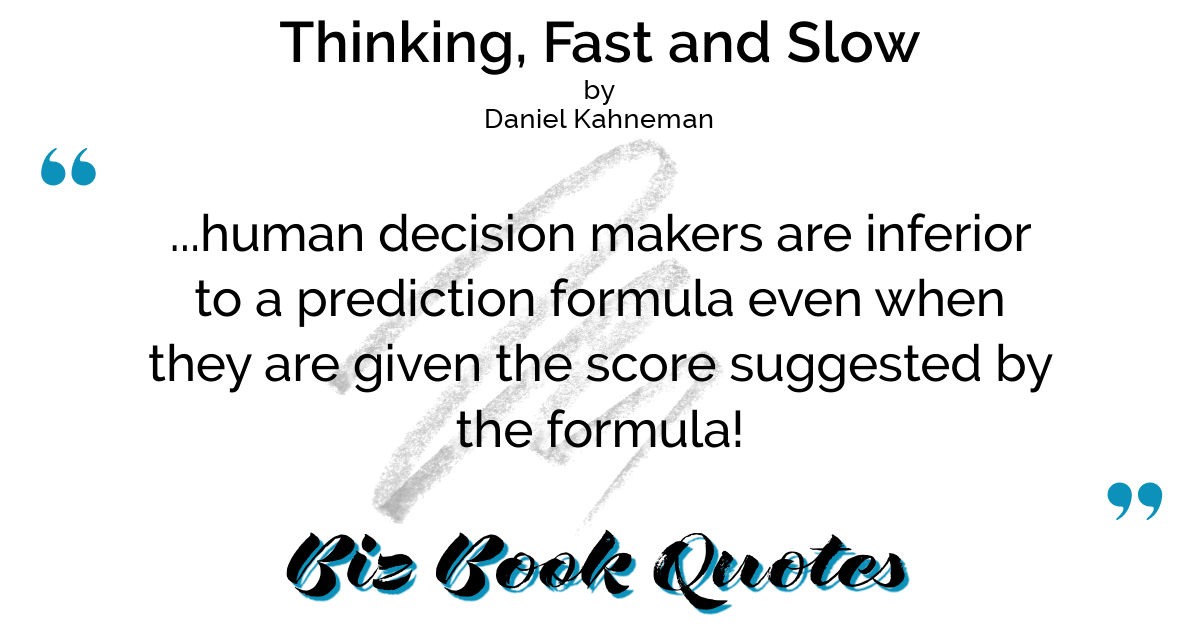 |
…human decision makers are inferior to a prediction formula even when they are given the score suggested by the formula!
|
224 |
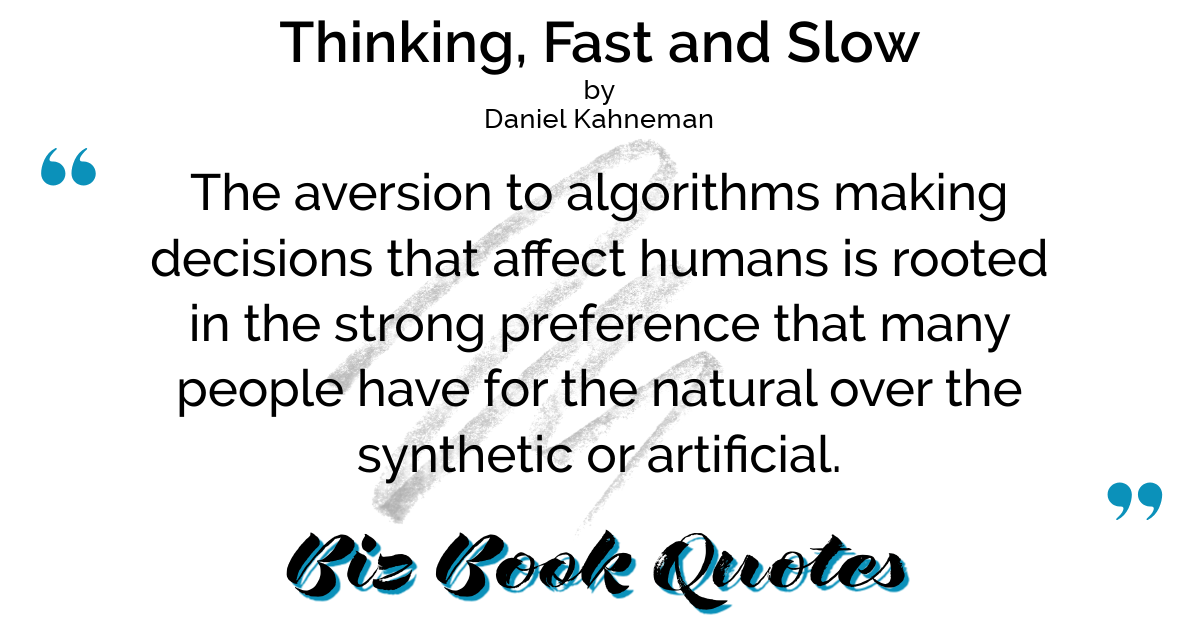 |
The aversion to algorithms making decisions that affect humans is rooted in the strong preference that many people have for the natural over the synthetic or artificial.
|
228 |
 |
…responsibility for avoiding the planning fallacy lies with the decision makers who approve the plan.
|
251 |
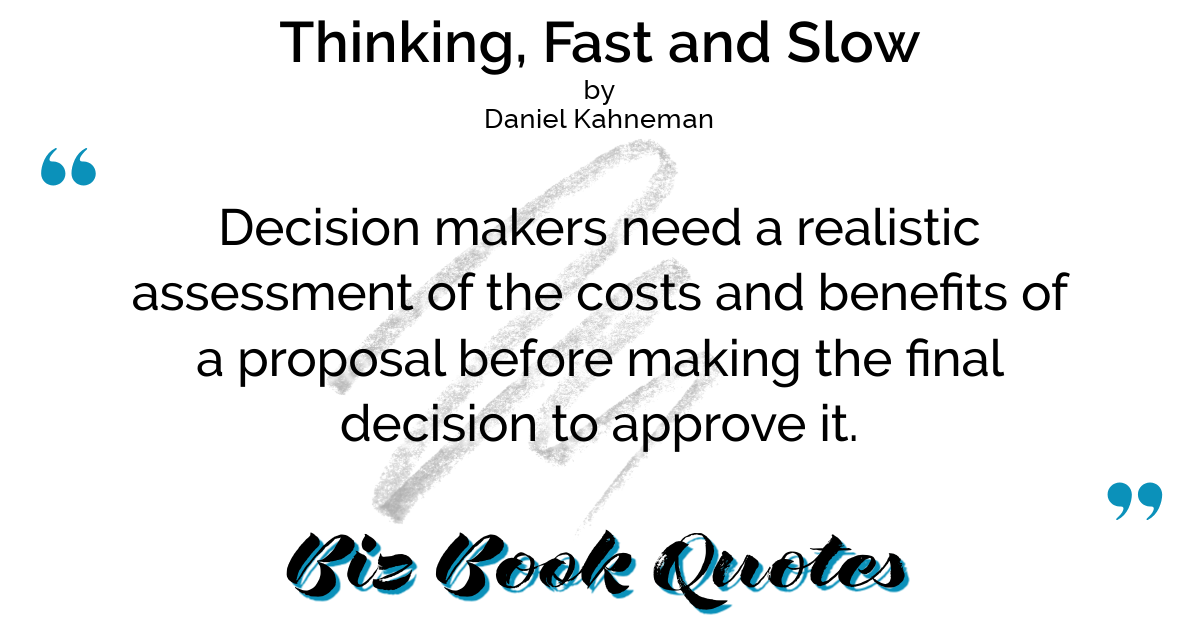 |
Decision makers need a realistic assessment of the costs and benefits of a proposal before making the final decision to approve it.
|
252 |
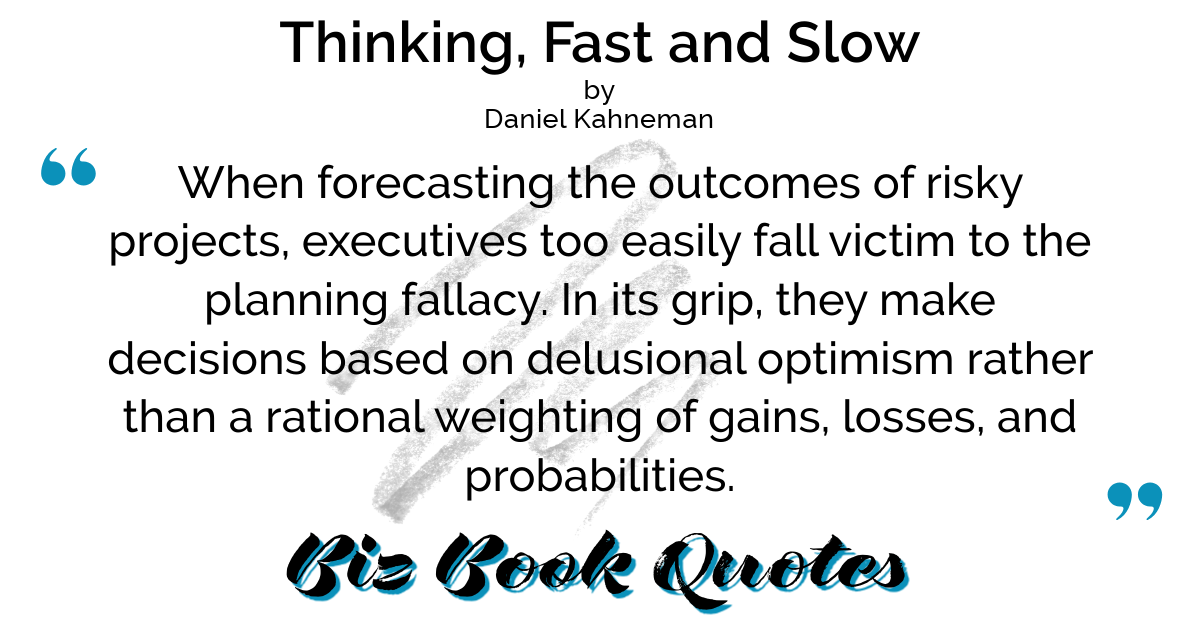 |
When forecasting the outcomes of risky projects, executives too easily fall victim to the planning fallacy. In its grip, they make decisions based on delusional optimism rather than a rational weighting of gains, losses, and probabilities.
|
252 |
 |
Every significant choice we make in life comes with uncertainty – which is why students of decision making hope that some of the lessons learned in the model situation will be applicable to more interesting everyday problems.
|
270 |
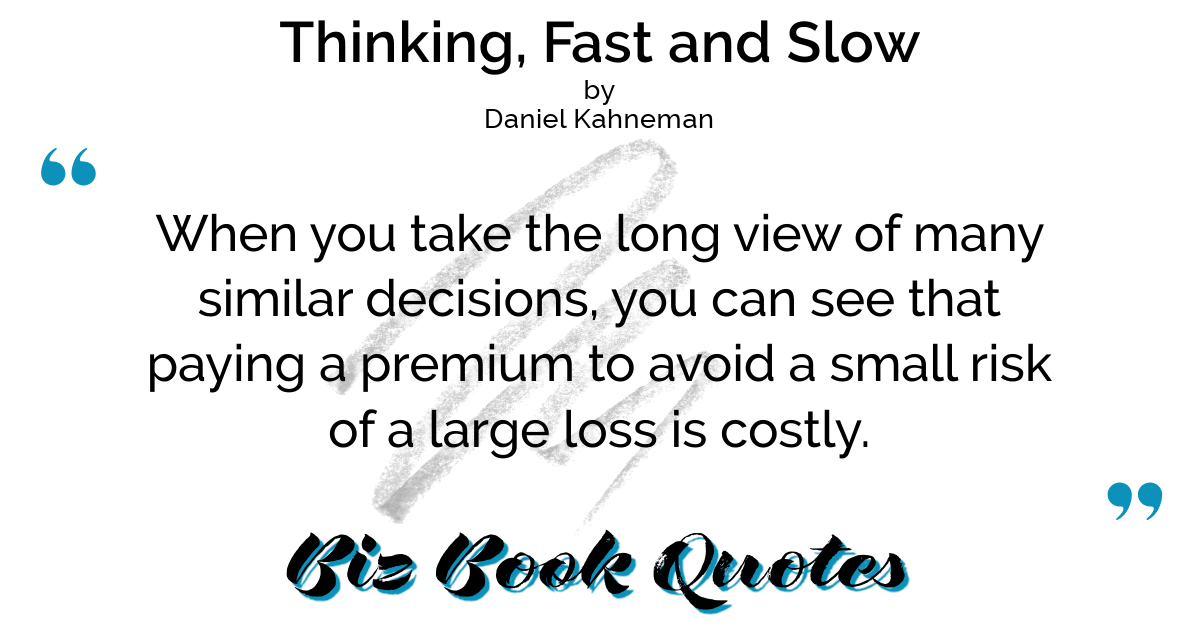 |
When you take the long view of many similar decisions, you can see that paying a premium to avoid a small risk of a large loss is costly.
|
321 |
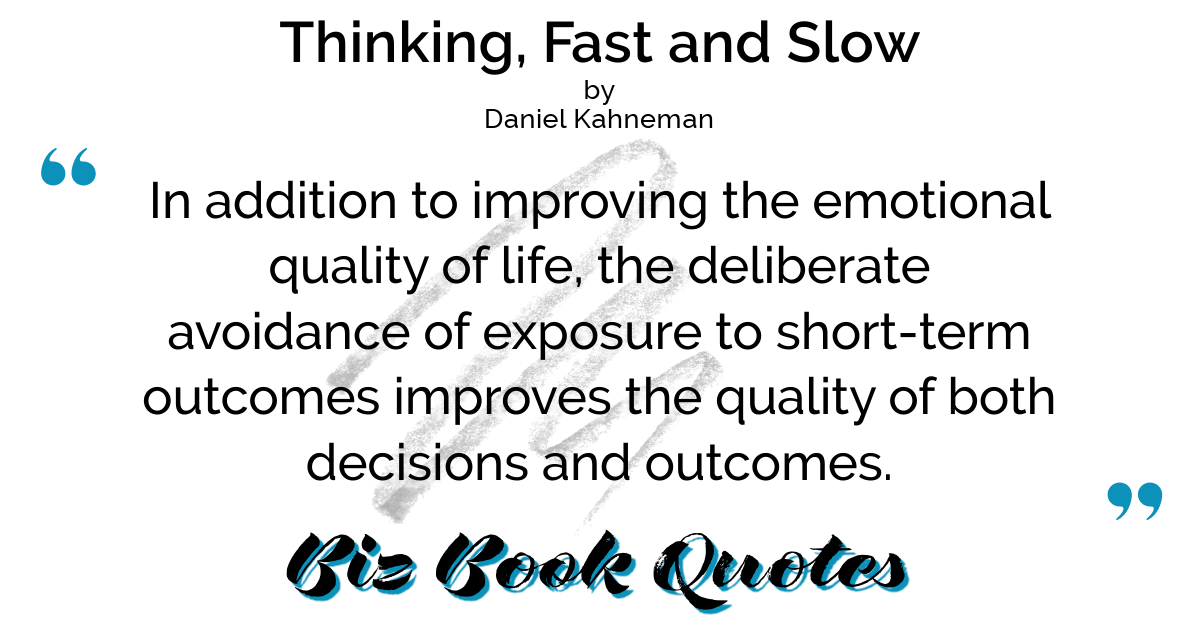 |
In addition to improving the emotional quality of life, the deliberate avoidance of exposure to short-term outcomes improves the quality of both decisions and outcomes.
|
339 |
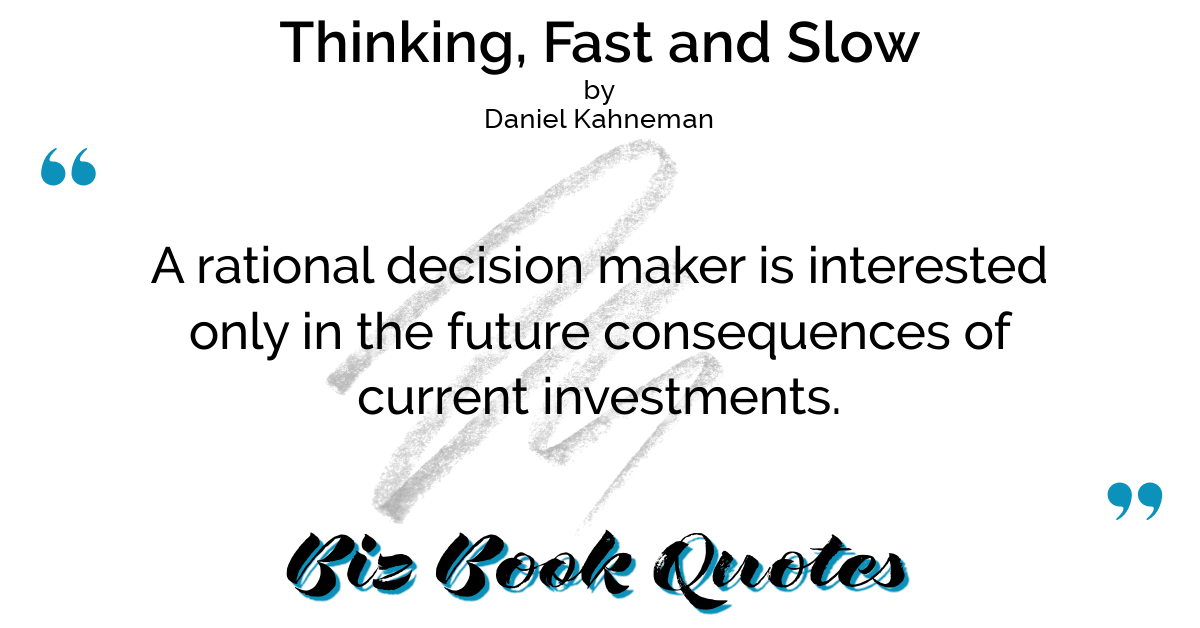 |
A rational decision maker is interested only in the future consequences of current investments.
|
345 |
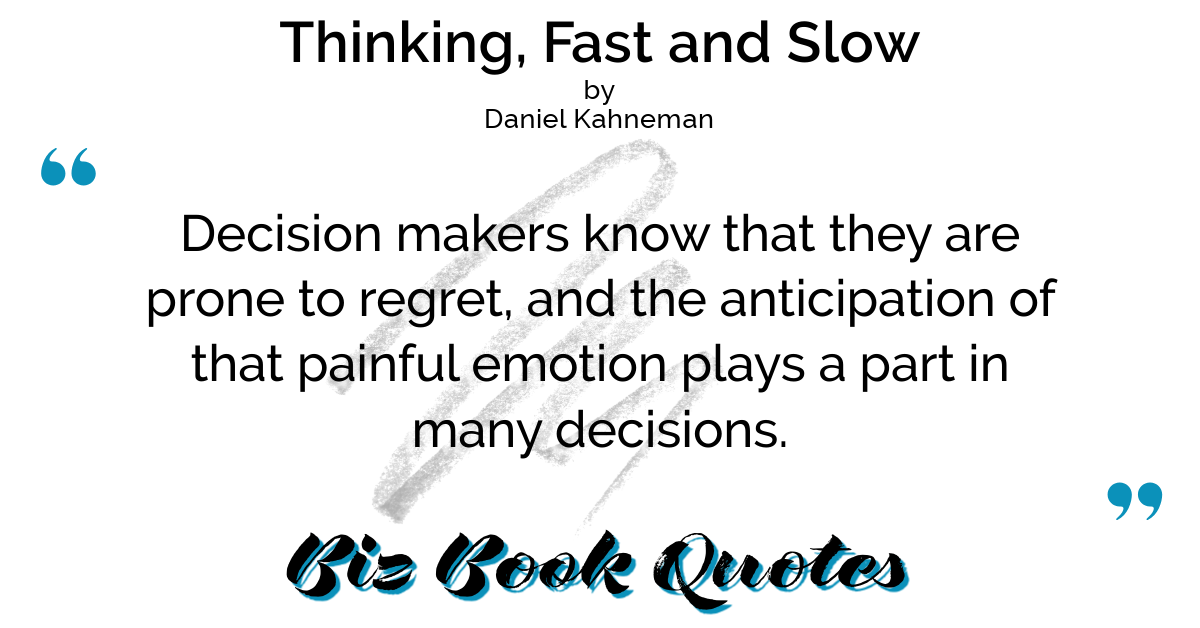 |
Decision makers know that they are prone to regret, and the anticipation of that painful emotion plays a part in many decisions.
|
347 |